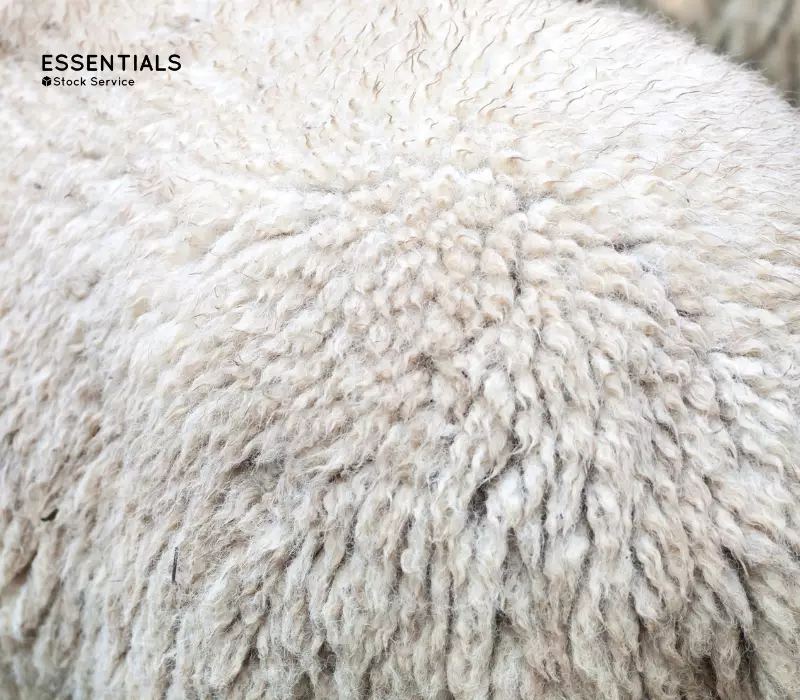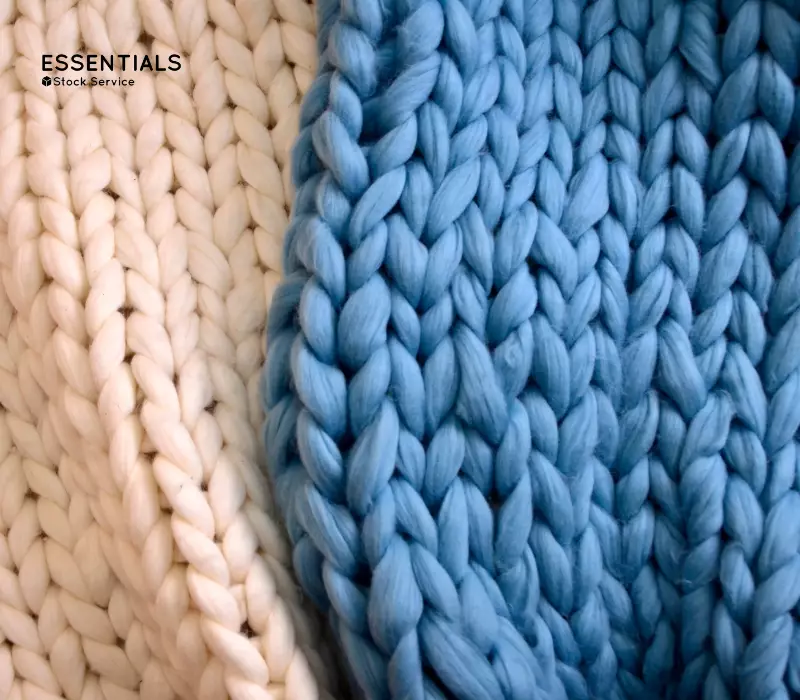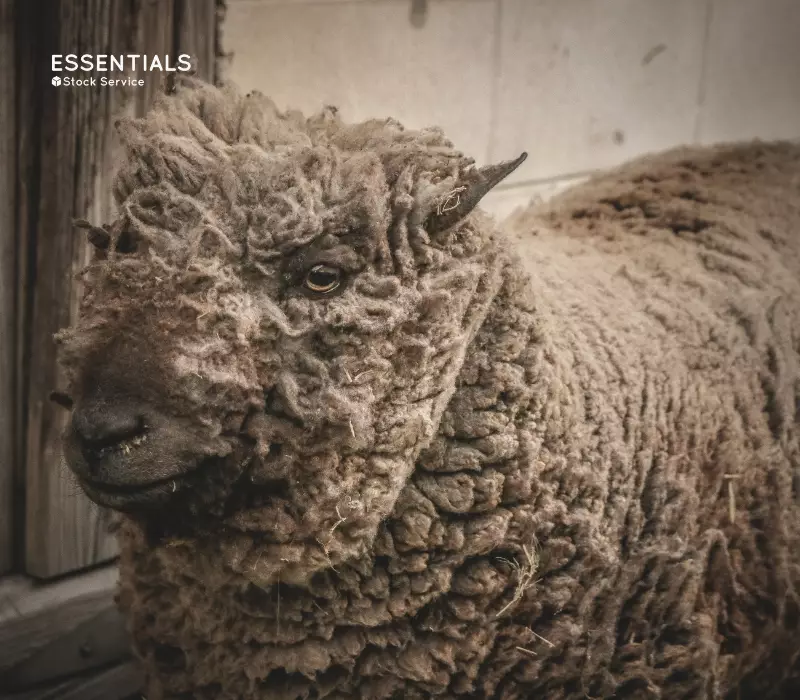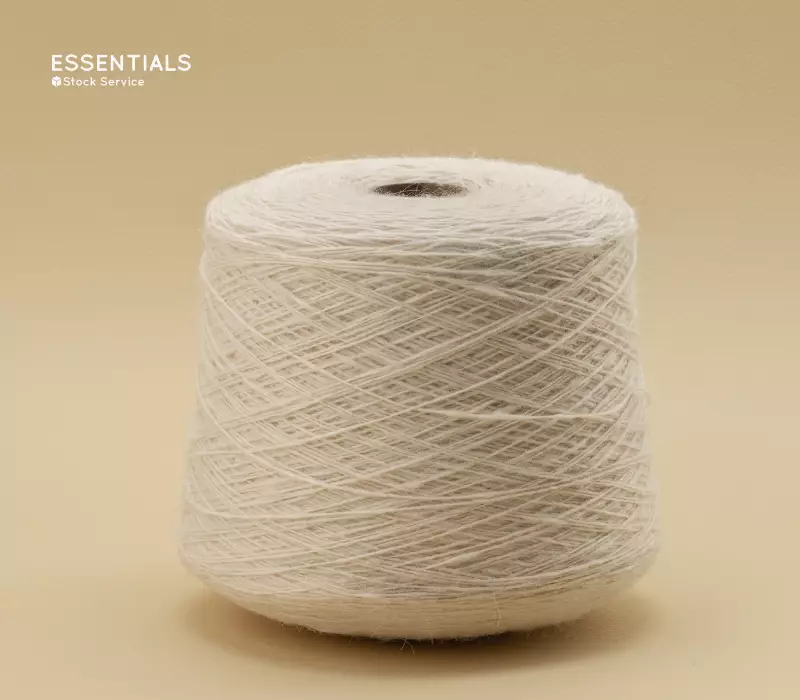For centuries, Merino wool has been considered one of the most prized fibers in the textile industry. Its exceptional softness, thermal regulation capacity, and durability make it the ideal choice for both business owners seeking high-quality materials and end consumers looking to create long-lasting and comfortable garments.
At Stock Service, Essentials, we offer Merino, Baby Alpaca, and Royal Alpaca yarns, each with unique properties that enhance the final customer experience.
What is Merino Wool?
Merino wool comes from Merino sheep, a breed known for producing extremely fine and high-quality fibers. Unlike conventional wool, Merino fibers range between 15.5 and 24 microns, compared to human hair, which measures around 30 microns.
This difference in diameter is key to the fiber’s softness. Fabrics made from thicker, less flexible fibers can cause itching, which happens when they exceed the 25-micron threshold—the reason why some traditional wools feel uncomfortable. In contrast, Merino wool feels light, warm, and pleasant to the touch.
From its origins in Spain to its expansion into Australia and New Zealand, Merino wool has been used in luxury clothing, sportswear, and functional textiles, adapting to the needs of those who seek comfort without compromising quality.
Is There Anything Softer Than Merino Wool?
While Merino wool has earned its place as one of the softest fibers in the world, at Stock Service, Essentials, we offer an alternative that surpasses that sensation: Royal Alpaca
Royal Alpaca comes from baby alpacas and has an even finer fiber diameter, making it incredibly delicate to the touch. Its silky texture and ability to regulate body temperature make it an exclusive option for those seeking a luxury textile experience.
Compared to Merino, its softness level is superior, making it ideal for garments designed for highly sensitive skin or consumers looking for a premium finish.
Advantages and Disadvantages of Merino Wool
Merino wool stands out for its many natural benefits. Its thermal regulation ability ensures that garments made from this fiber maintain a constant temperature, making it ideal for any season.
Another valuable attribute is its resistance to odors. Like other high-quality wools, it has natural antibacterial properties, preventing sweat from penetrating the fabric and causing unpleasant smells, keeping garments fresh for longer.
Additionally, Merino wool retains heat even when damp or wet, distinguishing it from many synthetic fibers. Its natural structure repels water, making it an ideal fabric for rainy or cold climates.
However, there are aspects that may be considered disadvantages. Its cost is higher due to its superior quality, and it requires specific care to preserve its properties over time. It is also less elastic than some synthetic fibers, although its flexibility remains remarkable.
Is Merino Wool Really Worth It?
Choosing Merino wool means investing in quality. For those seeking durable, comfortable, and functional garments, this fiber is a safe bet. At Stock Service, Essentials, we select the finest Merino yarns, ensuring that each textile product has an impeccable finish and tangible benefits for the user.
Beyond its exclusivity, its versatility makes it an essential material for multiple applications, from high-end fashion to technical textiles used in sportswear and outdoor clothing.
With its ability to adapt to different needs, investing in Merino wool always yields returns in durability, comfort, and performance.
What Are the Thicknesses of Merino Wool?
The thickness of Merino wool is measured in microns, and this fiber is classified into different categories based on its fineness:
- Coarse: 24-25 microns
- Medium: 22-23 microns
- Extra Fine: 19-21.9 microns
The finer the fiber, the greater the softness and quality of the garment. At Stock Service, Essentials, we work with yarns of different thicknesses to meet the needs of each customer.
How to Recognize Merino Wool?
To ensure that a garment truly contains Merino wool, it is important to pay attention to certain details. Softness is the first indicator, but the origin label should also be checked to verify quality certifications.
Another key test is its thermal capacity. Merino retains heat without causing excessive sweating, making it ideal for winter clothing and garments designed to maintain comfort in various environments.
Where is Merino Wool Produced?
The main Merino wool-producing countries are Australia, New Zealand, Argentina, Uruguay, and Spain. Each region contributes specific characteristics depending on the climate and sheep breeding conditions.
Spain remains a reference, as it is where the Merino sheep originated, while Australia and New Zealand have perfected production techniques to obtain increasingly fine fibers adapted to modern market demands.
Sustainability and Merino Wool
When it comes to sustainability, few fibers can compete with Merino wool. Unlike petroleum-derived synthetic fibers, Merino is 100% natural, biodegradable, and renewable.
- Biodegradable: As an organic material, it decomposes over time without leaving polluting residues.
- Renewable: Merino sheep produce a new fleece every year, ensuring that the fiber regenerates constantly in nature.
- Recyclable: Wool is highly recyclable, allowing it to be reused to create new sustainable textile products.
Conclusions
Merino wool is not just a natural fiber—it is an investment in comfort, quality, and sustainability. At Stock Service, Essentials, we offer Merino yarns alongside premium fibers like Baby Alpaca and Suri Alpaca, ensuring that each textile project has the best possible material selection.
If you are looking for a versatile, durable, and comfortable fiber, Merino is a choice that never disappoints. Its benefits make it ideal for luxury clothing, functional garments, and textiles designed to last.






